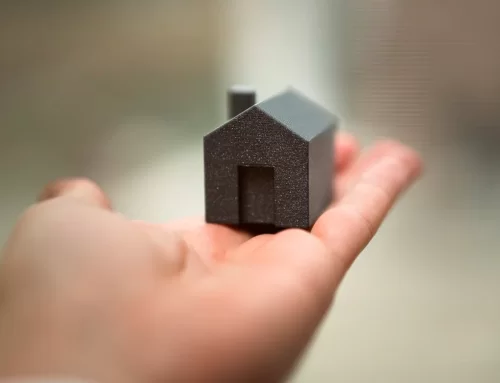Property is commonly regarded as the most valuable asset in the portfolio of a homeowner. Their home equity – the total value of ownership interest in their home – can be used to access forms of secured financing that offer more advantageous loan terms than unsecured personal loans or credit cards. But far too many homeowners fail to realize just how useful their home equity can be when they are in need of financing.
Over time, as homeowners make their mortgage loan payments and reduce their mortgage debt, they increase their proportion of ownership (i.e. home equity) until they get to the end of their repayment schedule. This reality of mortgage loan payments allows homeowners to access larger and larger amounts of financing, through home equity loans or home equity lines of credit, as home equity increases.
Reasons to Leverage Home Equity

Once approved by their financial institution, borrowers can use a home equity loan, which are sometimes referred to as second mortgages, for any use they see fit, but they are generally reserved for situations where a large lump sum is required to meet a sudden need.
Common reasons homeowners choose to borrow money by leveraging their home equity include:
Emergency Expenses
It’s impossible to plan for accidents or emergencies, but when they inevitably occur, it’s nice to have the financial backup provided by home equity credit lines and loans. Whatever the case might be – a medical emergency, car accident or an urgent family situation – the large sums available through a home equity loan are often just what is needed to help handle the expenses, manage stress and overcome the challenging situation life has thrown their way.
Debt Consolidation
For people who maintain large balances on high interest personal loans or credit cards, using a home equity loan for debt consolidation can actually help save money in the long run.
When a credit card nears its credit limit, the large outstanding balance translates to significant monthly interest payments, which can make keeping up with a monthly payment schedule more costly than it has to be. In this kind of situation, using a home equity loan to secure enough financing to eliminate the outstanding credit card balance is advantageous because the home equity loan balance can be paid down at a lower fixed interest rate.
Ultimately, borrowers also have to pay interest on their home equity loan, but with a monthly payment schedule and lower interest rate that will help them get their finances back on track.
Home Repairs & Renovations
Home ownership is costly, as everyone knows, but it remains difficult to predict how much money homeowners need on hand to keep up with needed repair and renovation projects. Budgeting for standard maintenance and small projects is manageable, but when a major problem occurs, it can’t simply be ignored because it doesn’t fit with the budget.
Whether it’s the foundation, roof, plumbing, or electrical system, certain household issues need to be resolved as quickly as possible, which is why so many homeowners choose home equity loans when these problems occur.
Home Equity Loan vs Home Equity Line of Credit (HELOC)- What’s the Difference?

Unlike a personal loan, which is an unsecured type of financing, both home equity loans and lines of credit are backed by the value of your home. This collateral is why a lender will offer more advantageous terms for credit vehicles backed by home equity.
A home equity loan is a one-time, lump sum that the borrower must pay back over time. Home equity lines of credit are revolving credit tools, similar to credit cards, where borrowers can withdraw money, up to their available credit limit, as they see fit throughout the draw period.
Home equity loans are usually offered with a fixed interest rate and predictable repayment schedule, so borrowers don’t have to worry about variable interest rate implications and can plan their finances accordingly.
Calculating Home Equity
Home equity generally increases over time, but the rate of change is greatly influenced by changing property values and the responsible use of credit.
People who consistently make their monthly payments, even if variable interest rates are involved, will steadily build their home equity over time. But things that are beyond their control – the performance of the housing market – can actually have a huge impact on their home equity.
In certain cities, property values have seen spectacular increases in recent years, which means that homeowners in those markets have also made major equity gains. As market values increase and mortgage balances decrease, both deliver homeowners more equity.
For example, if a home is valued at $400,000, but $150,000 is still owed on the original mortgage, then the owner would have $250,000 in equity. Now, if that same owner is in a hot housing market and they make consistent mortgage payments, these projections could change significantly in short order. Say this same hypothetical owner decides to revisit the idea of a home equity loan a few months later, a jump in market value and reduction in outstanding balance brings a lot more equity into play.
In this instance, a $440,000 evaluation (from a 10% increase in the appraised value) and $140,000 outstanding balance ($10,000 paid down) means that there is now $300,000 in equity to leverage.
When applying for a second mortgage, the loan amount can generally be up to 80% of the value of the home, less the outstanding mortgage balance from the first mortgage loan.
Using Home Equity – Advantages & Drawbacks

Home equity loans have two major advantages. First, they are readily accessible for any homeowner, with sufficient equity, as the secured nature of these loans help lenders mitigate their risk. Second, home equity loans are usually offered at relatively low interest rates, which makes them more affordable to use than other forms of financing.
Despite the advantages, however, homeowners should not rush out and apply for a home equity loan without carefully planning their finances. Ultimately, these loans use borrower’s homes as collateral, which means that, in the event of default, they could potentially lose their homes.
The Tribecca Advantage
At Tribecca, our simple and easy application process means that you could potentially have your loan application approved the very same day. As a direct lender, we make sure that our clients get quick access to their financing, and that it is always offered at the best possible rates.
If you are looking for mortgage solutions, our professional team of mortgage specialists will help you find the financing that makes sense for your situation.





